Can you let someone live on your property in a camper?
There is no straightforward answer to this question. The legal rules surrounding RV living vary from state to state and even by county or city.
To simplify the ins and outs of camper living on private property, I detail all the information you need right here, including zoning laws and other requirements.
So if you want to know if you can park a camper in your backyard, live in a camper on someone else’s property, rent out your RV for someone to live on your property, what states are RV friendly, and more, please stick around!
The Rules About Living In a Camper on Personal Property
There are many reasons people consider living in a camper on personal property over choosing to reside in an RV park or mobile home community.
Many want to save on the cost of site rental, prefer more privacy, or don’t have an RV campground in convenient proximity to their job or family.
With the current unease of the world today, more and more people are looking into letting someone live in a camper on personal property, be it themselves, family or friends, or even strangers.
The problem with such a plan is that some areas of the country have no regulations on such an endeavor, while others are stringent, especially if your property is within the city limit or part of an HOA.
Things to Consider Before Letting Someone Live in an RV on Your Property
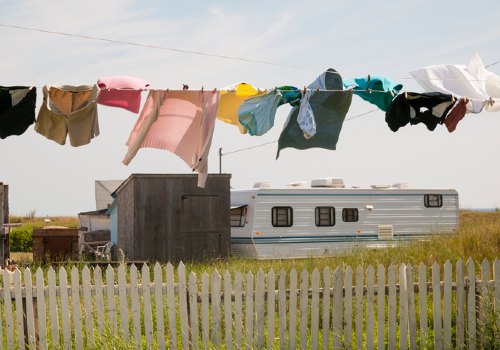
Local Zoning Laws for RV Living on Private Land
Zoning laws are the number one deterrent in letting someone live in a camper on private property.
A recreational vehicle is mobile, but laws do not classify it as a mobile home. Trying to use portable or manufactured-home rules to set up a backyard or empty lot RV abode can lead to disaster.
Some mobile home parks allow people to buy individual lots, but these communities are not for RVs, only manufactured trailer homes.
Once you surpass a week or two of what most people consider a vacation stay, you will have issues living in a camper on private property in most states.
Before getting excited about setting a camper up on your property, do plenty of research.
Visit the zoning board of your county and get first-hand information about the legality of your plans. Don’t rely on hearsay from friends who may have gotten away with a similar living arrangement.
Fines or even removal of the camper may happen if you don’t follow the local zoning laws.
Some areas forbid full-time living in a recreational vehicle outside of proper RV parks, while others allow it as long as you apply and pay for the right permits.
A few places have no rules for camper living on private property, but they are hard to find.
Setting up a camper for permanent residence is frowned upon in most larger cities. HOA boards in residential areas also have strict rules on RV living and parking on private land.
Even if you can legally park and live in a camper on your property, the unit may have to be in a location hidden from the sightline of neighbors or the street.
Unfortunately, you must go down the line for your specific circumstances and get the proper permissions from the state, county, local, and HOA officials to allow someone to legally live on your property in a camper.
Providing Proper RV Hookups
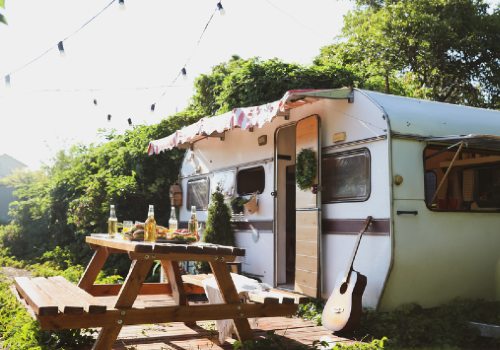
Before you or anyone else can live in an RV or camper full time, you must have access to electricity, water, and sewer connections.
Water Connection
Water is the easiest and cheapest connection to make to a camper on your property if you don’t have to dig a well.
You can run a hose from an outdoor spigot or bury insulated piping over to the camper and install a new bib, so things look neat.
Electrical Concerns
Dragging out a heavy-duty extension cord for a 30-amp camper is not so difficult if you don’t plan on running the air conditioner.
Now, a 50-amp camper is a different story. You want the RV to function fully, which means you must provide a safe and reliable source of power that an extension cord can’t provide.
Permits are generally required for any major electrical work on residential property to verify it’s up to code for safety.
If you don’t have a 50-amp service for a camper, you’ll need to install a 50-amp breaker into your main electrical panel. After that, you need to run a wire out to the camper site and set up a proper pedestal with a 50-amp outlet.
The gauge of wiring necessary to safely handle 30 and 50-amp recreational vehicle electrical connections are expensive, especially if you must bury it a long distance.
Sewer Connection Concerns
The biggest issue with backyard camper living is the waste disposal of grey and black sanitary tanks.
Most full-time RVers empty their tanks every three or so days, which requires direct disposal into a properly installed sewer line.
Most property owners fail to have an “extra” sewer connection in their backyard. Or, if they do, it may not be in the right location for easy hookup to a camper.
Even if a camper has the equipment to operate off-grid, through solar panels, composting toilets, or a generator, not having a place to drain tanks is still an issue.
Installing a sewer line that connects to existing pipes is possible but can be a costly project. That decision may or may not pay off depending upon how much the benefit of having a full-hookup camper on your property means to you.
Whatever you do, don’t ever dump wastewater directly onto the ground.
Even grey-water smells terrible, and both black and grey tank fluid can spread dangerous pathogens that are bad for the environment.
If connecting to an existing sewer line is a problem, consider a small DIY septic system to handle the wastewater from the camper.
Getting the Camper on and off the Site
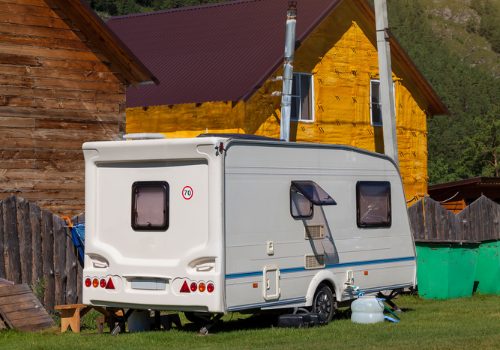
It would be best if you thought about how you will access the location you plan to place the camper.
Is there already a road or driveway in place for easy parking? Will you have to traverse uneven, possibly soggy ground?
That nice open field may be full of hidden ruts or rocks that can make it challenging to get the recreational vehicle in position.
Trying to maneuver a fifth-wheel or large travel trailer into a fenced backyard within a neighborhood may be impossible.
Don’t jump the gun and do a bunch of prep work to set up an RV site on your property without knowing for sure you can safely get the camper in and out.
Rules for Living in an RV on a Property Where a House Is Being Built
Say you are building a home and want to live in your RV on the land until it is complete. Is this legal?
It’s acceptable to live in a camper in most areas, as long as you stay within the local rules during the build.
In Florida, I know that in one county in the panhandle, you can live in a camper for up to one year with a permit as long as construction is ongoing.
Many RVers who want the privacy of owning land, but don’t want a sticks-and-bricks home, try to skirt this regulation by working slowly or putting up fences or outbuildings.
Want to Connect With a Community of Over 1,078 RV Enthusiasts?
Once their permit expires, they go in with a sob story and extend it a few more months. Local officials are starting to crack down on these types of schemes, so don’t bother with potential problems if you have no intention of building a home.
Instead, consider states where rules are less stringent.
Can I Rent Out a Camper on My Property?
Many people think about making extra cash by using their RV as an Airbnb or monthly rental on their property.
If you can legally park your camper for full-time living, that’s wonderful, but there are still other problems that can arise once you become a landlord.
When money starts changing hands, a whole new bunch of laws can apply, so renting out a camper on your property can be a risk. If caught, someone may fine you for operating an illegal RV park.
Even if you keep the payments hush-hush, there can also be tenancy laws that can make things messy if issues arise. Many states have laws that require a court-ordered eviction once a tenant has been on site for over 30 days.
So if Joe rents your backyard camper and likes to drink heavily and sit outside in his boxers all day, it may be difficult to get rid of him if he doesn’t feel like going, whether he pays the rent or not.
Letting someone you trust live in the camper can work out well financially for both parties, but keep your eyes open about the potential pitfalls.
Can I Live in My Camper on Someone Else’s Property?
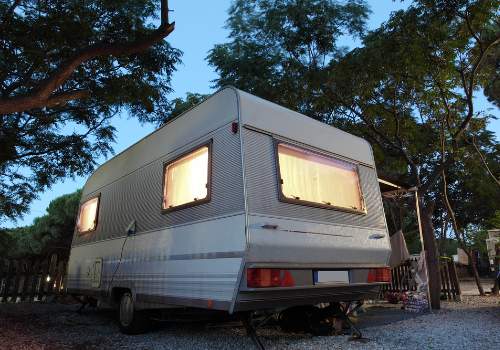
Sure, you can live on someone else’s property in your camper if that landowner did all the due diligence about zoning laws, you have the hookups you require, and you have some rental agreement worked out.
You may need to maintain the property in exchange for cash rent payments or have to stay quiet until 10 AM every morning until the homeowners wake up. You may have to pull your camper out every month for a few days to stay within short-term “vacation” stays a city allows.
Whatever the circumstances, you’ll need to abide by the landowner’s rules and trust they conform to local laws so you don’t find yourself back on the street without any warning.
Which States Allow RV Parking on Private Property
Most states allow you to park your RV in a backyard or on land you own, but living in the camper is a different story.
If living in a camper on your own property is a dream, consider these RV-friendly states first:
- Nevada
- Florida
- Washington
- Texas
- South Dakota
Western states with lots of open land tend to have the fewest restrictions on zoning laws for living in a camper full time.
Most of these states still have affordable land to purchase, and some don’t have a state income tax, making them even more attractive for RVers on a budget.
Another option if you want to let someone live in a camper on your property is to look into some communities that offer residential lots with ready-made RV hookups, such as those found in the tiny town of Lillian, Alabama.
In the Spanish Cove subdivision, there are sections that allow people to live in their RV full-time and many lots that have a home plus an additional RV site you can theoretically allow someone to live in if you keep it low-key.
This particular subdivision is a mix between a retirement community, RV park, and standard residential housing that is wonderfully affordable and convenient.
While these types of communities are hard to find and parcels are in demand, they offer the best of land ownership and proper RV connections that take all the hassle out of living in a camper on private land.
Final Thoughts
I wish the rules for living in a camper on private property were less confusing, as it offers a cozy and affordable housing option that can benefit many people.
To avoid wasting money on improvements to your land to support a camper and dealing with legal issues, make sure you check first with local zoning laws so you can let someone live in an RV short or long-term without worry!
Live in RV on Your Land? What to Consider (Video)
"Man cannot discover new oceans unless he has the courage to lose sight of the shore."
-- Andre Gide

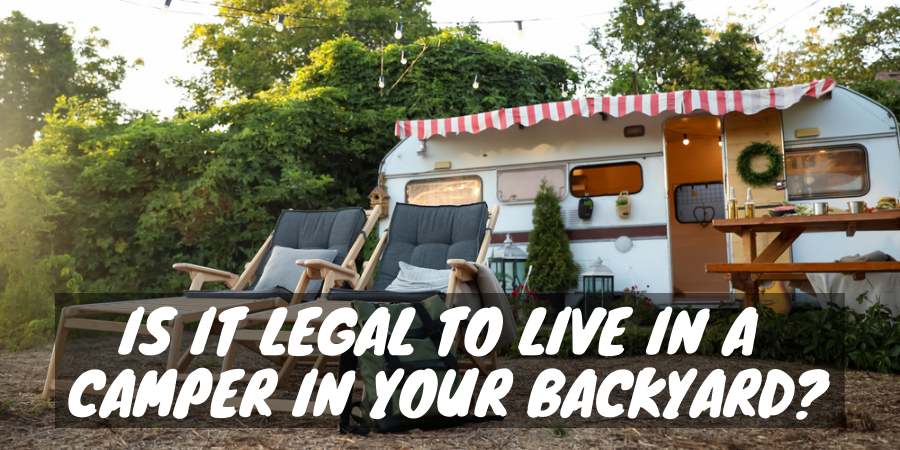
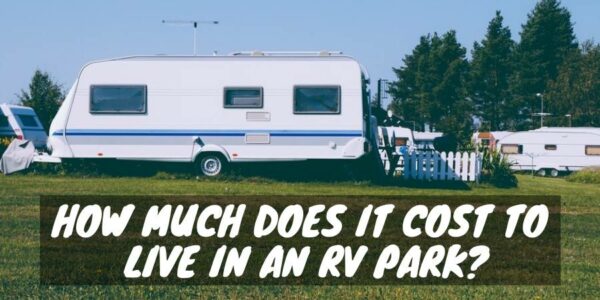
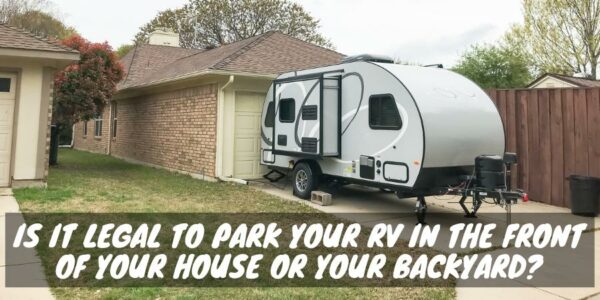

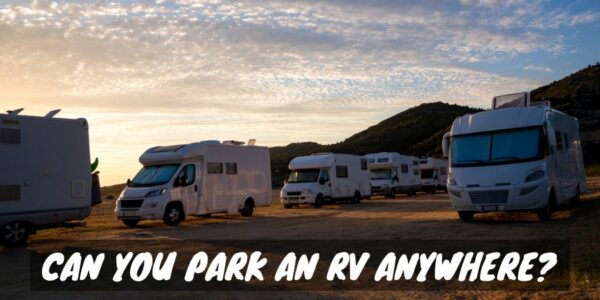
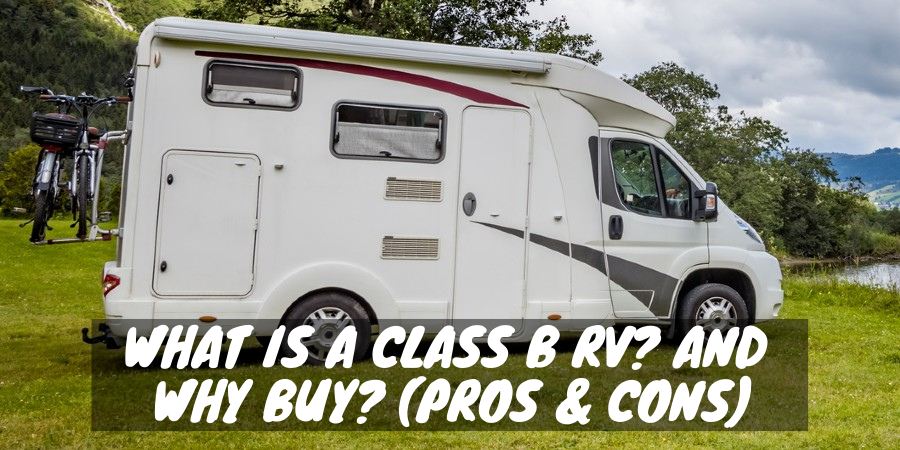


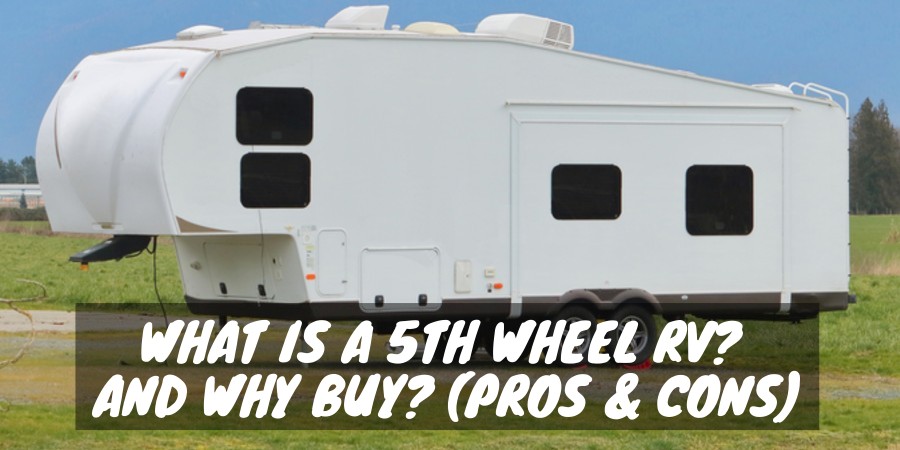
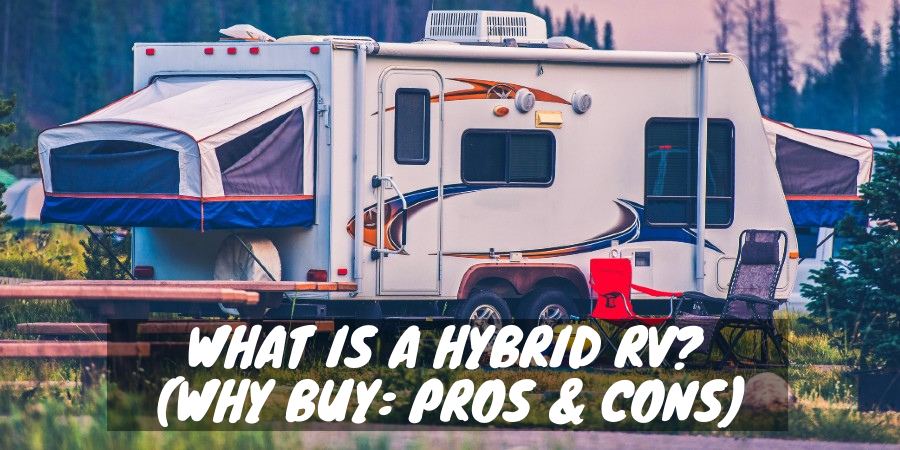
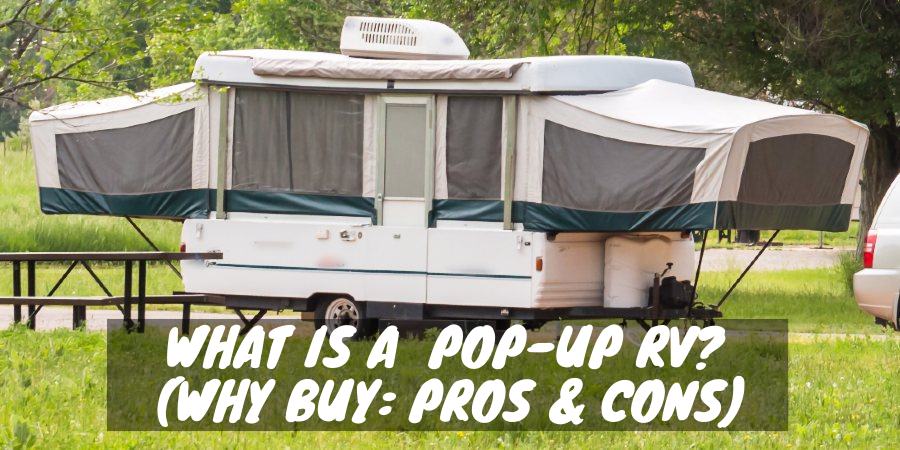
If I have been living in my 5th wheel on a family members property for months but now they want me to leave. And now saying that I owe money for electric, can they legally stop me from removing it until I pay for the electric bill? We have nothing in writing on any of this?